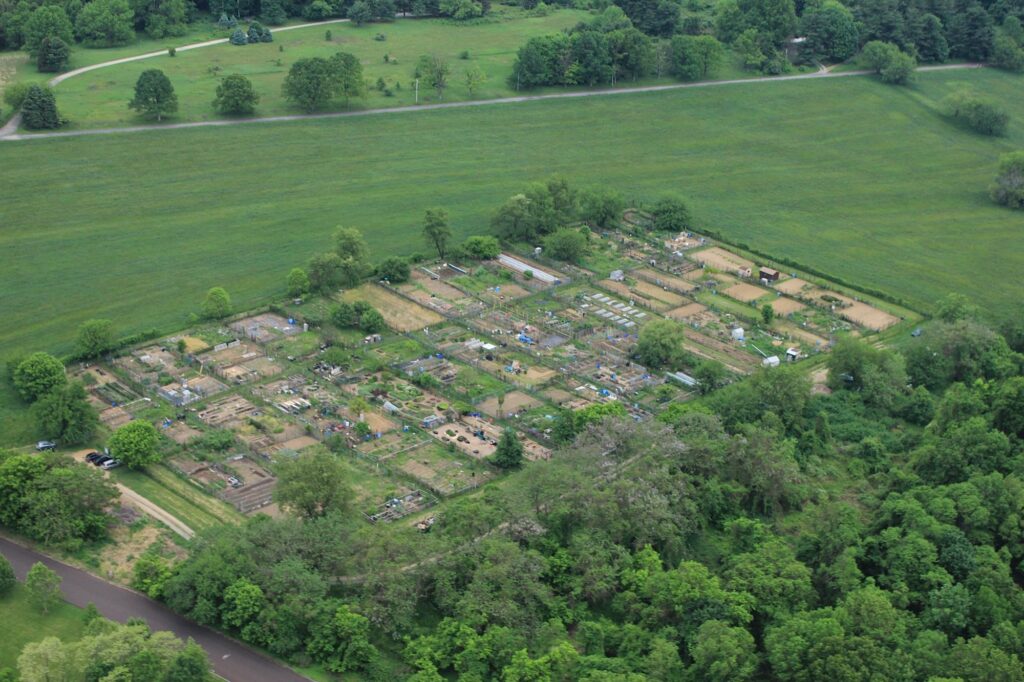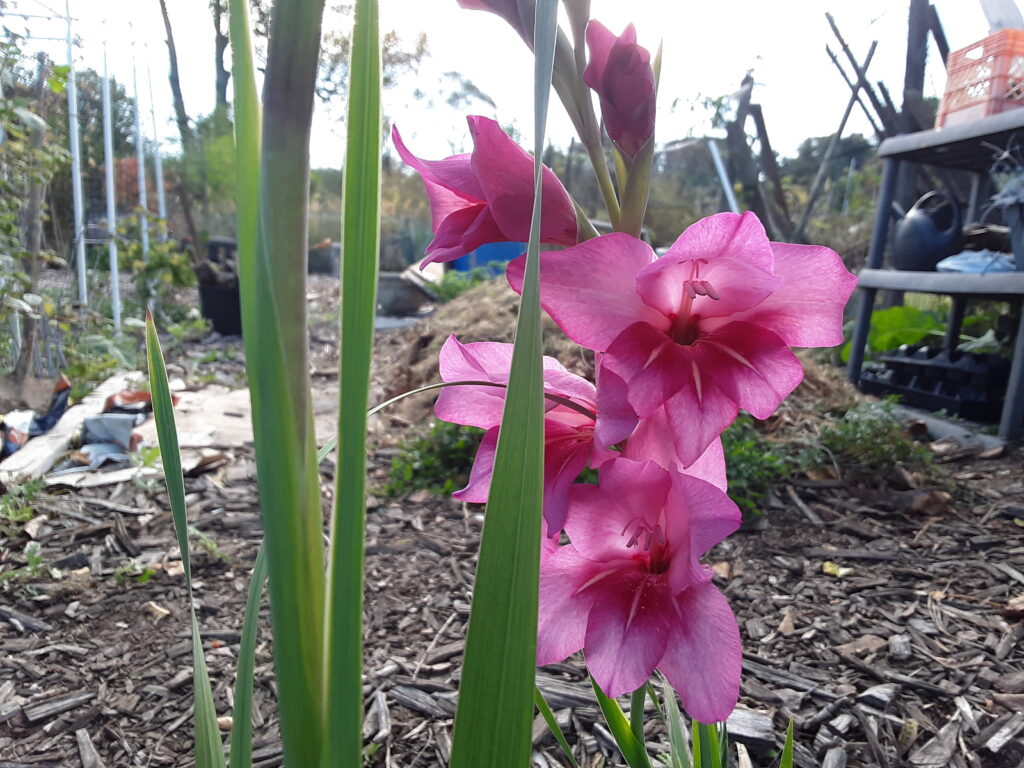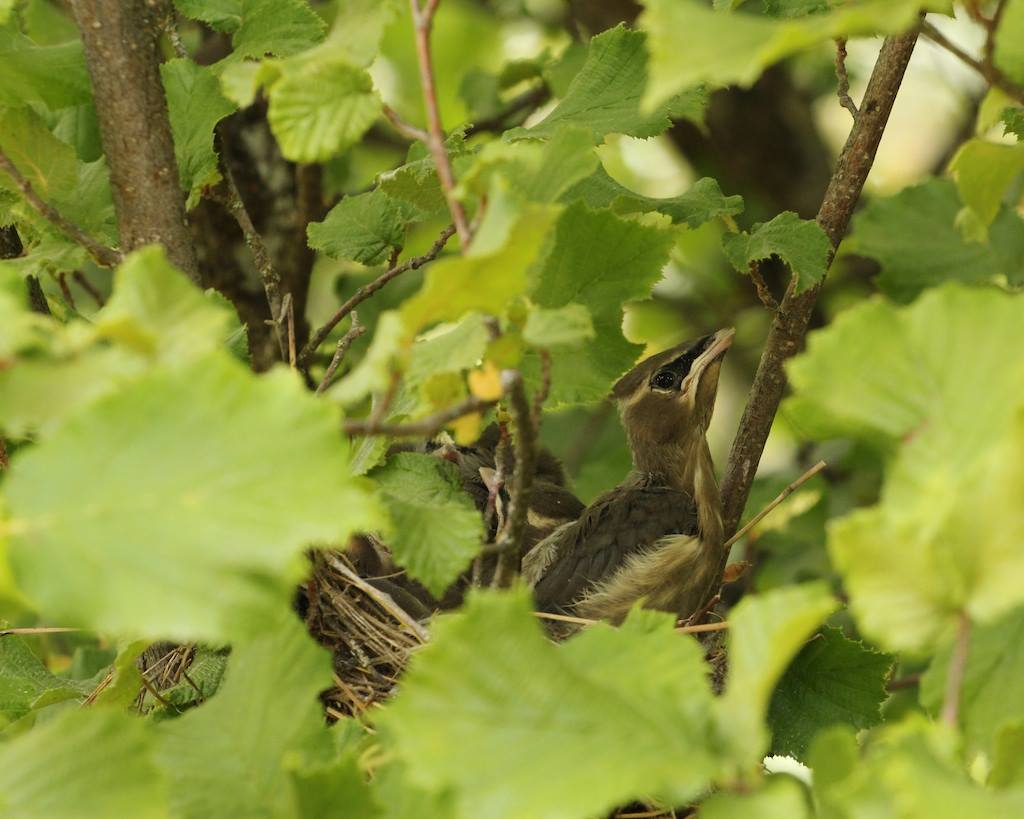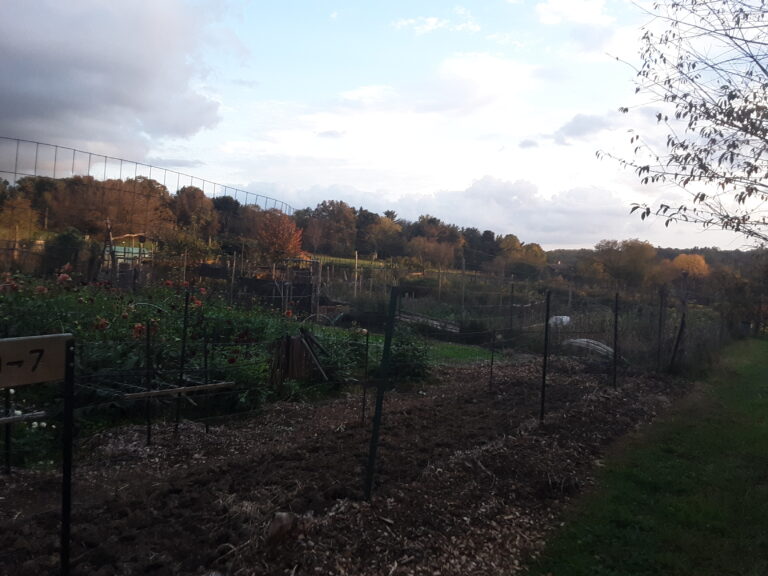The Organic Gardens at Manatawna Farm

The Organic Gardens at Manatawna Farm have been an oasis for the region for nearly 50 years; acting as a stalwart space for growing fresh produce, cultivating healthy habitats and expanding our growing skills.

As one of Philadelphia’s largest community gardens, we offer large garden plots and always have space for new gardeners. Our amenities include ample parking, multi-gate access points, a hose system for irrigation, a porta potty, and community tool sheds. It is an unique green space for Philadelphia that has positively touched the lives of hundreds, if not thousands, of residents.

While the Organic Gardens at Manatawna Farm are an amazing place to garden, it also has its challenges. If not attended too, invasive vine and other weed pressure becomes intense in summer, which can quickly claim a plot; and the surrounding natural habitat does lend itself to deer and other herbivores being attracted to the gardens. It takes hard work from our gardeners, Abundant Philly’s team of stewards, and various volunteer groups to maintain the gardens’ condition. Working a garden plot is not easy – but our long-time gardeners agree it’s well worth the effort!
Get Involved
The benefits of community gardening are well-known. Our gardens provide the community with fresh, local produce and promote healthy, sustainable eating. Gardeners of all ages can enjoy the physical benefits of light exercise and getting out to the fresh air. And most importantly, our gardens are a community, where people build connections and friendships working together towards a common goal. Garden plots are licensed annually in the Spring, but we often have plots become available throughout the growing season. If you’re interested in signing up for a plot, you can fill out our Prospective Gardeners Form here. Please read through the Frequently Asked Questions (FAQ) for details regarding the space, our plot licensing program, and what its like to garden with us. If you have any other questions, you can reach out to Abundant Philly’s founder & CEO, Kyonne Isaac using the Contact Us page.

Frequently Asked Questions
- How old are the gardens?
Our gardens were founded by the Schuylkill Center in the mid-1970s. A few of the original gardeners are still gardening here today! - How big are the gardens?
Our gardens occupy 5.25 acres of land, which are broken up into 475 plots. - When are the gardens open?
Sunrise to sunset. The use of power tools is prohibited between 6pm and 9am. - How big are each of the garden plots?
Each plot is approximately 16 by 20 feet or slightly larger. Many plots appear larger because they are actually several joined plots. - What can I grow on my garden plot?
You can grow whatever you want, as long as the plant isn’t on the PA DCNR’s list of invasive plants or a tree/shrub that reaches maturity over 6′ height. Most gardeners grow produce and vegetables for their family, friends and churches. A few will grow for restaurants or other business ventures, while many donate to local food banks or the Schuylkill Center’s Wildlife Clinic. Some gardeners plant to attract pollinators, some oversee horticultural research projects, some craft their gardens into a beautiful oasis in the city, and most combine some or all of the above. - How much does a garden plot cost?
The cost for a plot license is $65 per plot per year. Gardeners pay for their plot licenses annually. - For how long will I have my garden plot?
Plots are rented for one year beginning March 13th of the current year, and ending March 12 of the next year (example: March 13, 2025 – March 12, 2026), regardless of when the license or payment was submitted. Gardeners returning from a previous year are first given the option to renew their license for those plots. - What is it like to take care of a garden plot?
It can be a lot of fun, and also take a lot of work! As a guideline, expect to spend at least one day a week working your plot, with additional visits as needed. The workload varies depending on the number of plots you take, the condition of the plot when you start, the plants you grow, the amount of rain, and more. Generally, gardeners who spend more time working their plots achieve better results. We do not recommend getting a plot license if you have a very busy schedule or will be taking long vacations this summer. - Where can I put all my green waste?
We have two large piles of green waste, one by the main entrance and another by the woods. Though these piles are labeled “compost”, they contain many live seeds and should not be used to fertilize soil. - Where can I find wood chips and/or compost for my garden plot?
We provide wood chips for gardeners to cover walkways within their plots and limit the growth of weeds. Wood chip piles are outside the fence along the edge of the gardens. Gardeners are welcome to create a compost area within their garden plots. Affordable compost is also available through several different local sources:- Fairmount Park Organic Recycling Center offers free compost exclusively for Philadelphia residents.
- The following townships also provide free compost exclusively for their residents: Springfield, Cheltenham, Whitemarsh, Abington, Upper Dublin, Upper Marion, Plymouth (separate fee for delivery)
- Local businesses also provide compost, including: Bennett Compost (located in Philadelphia, PA), Mulch Works Recycling, Inc. (located in Aston, PA), Primex Garden Center (located in Glenside, PA), Organic Mechanics (located in Modena, PA and for sale at many local garden centers)
- Would I need to build or maintain a fence?
Most plots in our gardens are at least partially surrounded by fences. Fences are not formally required but most gardeners have them to keep out deer and other animals. If your plot already has an existing fence, you are required to maintain that fence so that it does not fall into the aisles or a neighbor’s plot. If you are replacing the fence, you must maintain the original boundaries of the plot without expanding. If you share a fence with a neighbor, you must work together to coordinate its maintenance. Abundant Philly maintains the outer perimeter fence. - Are there problems with deer and other pests? What can I do about it
Yes! Deer, rabbits, groundhogs, and other animals frequently visit our gardens. Please keep all gates closed in the perimeter fence. To keep deer out of your plot, maintain a high fence (~8 feet) around them. To keep groundhogs out, make sure your fence is buried approximately 2 feet into the ground. To prevent crop losses, be sure to harvest your produce quickly before birds and other animals get to it. - Can I borrow any tools?
We have two communal tool sheds, both within the perimeter fence – one is located near the main entrance, and one is located along the side facing the woods. Sheds contain wheelbarrows, hoes, and other equipment that gardeners have donated. Feel free to borrow these, or to contribute your own equipment for the group’s use. But make sure you put back anything you take! - Can I get help working my garden plot?
Once you have a license to one or more plots, the land is your responsibility. Abundant Philly is a small organization, with very little time or money to devote to tending the individual garden plots. However, we try to give all gardeners the resources to succeed, so please ask if there is anything specific you need. We coordinate several volunteer work days, where groups trim vines, mend fences, and otherwise maintain the gardens. We also are responsible for mowing the walkways. - What should I consider when picking out a garden plot?
All plots are licensed “as-is,” meaning that you accept the plot in its condition and Abundant Philly is not responsible. Some of the available plots were recently occupied and are free of weeds or debris. Others are fallow and overgrown. We recommend you pick a plot that is a good fit for your experience and lifestyle. Consider the number of plots, the need for construction projects (i.e. fencing, raised beds), proximity to amenities (entrance gates, irrigation spigots, wood chips, compost piles), amount of weeds/brush, and the amount of sunlight or shade. We recommend that new gardeners start with one or two plots. You can expand in future years. - What rules do gardeners follow?
The list of rules is attached to each license, posted on the community board near the main entrance to the gardens, and available upon request. Use the Contact Us page. - Are the gardens really organic?
Yes. Any use of chemical fertilizer, pesticides, or additives is strictly prohibited. Any product used to improve plant health should be on the OMRI Product List, a list of approved organic materials. - What is the garden inspection?
Abundant Philly inspects all gardeners’ plots three times a year: mid-June, mid-July, and mid-August. Inspections are to make sure that gardeners are using their plots in accordance with the rules. Common issues include fences falling into walkways, overgrown vines blocking walkways, or absentee gardeners not tending their plots at all. - How do I water my garden plots? How much water can I use?
There are twenty-eight irrigation spigots throughout the gardens, two for each aisle. No plot is more than about 100 feet from a tap. Please conserve water, not only for the environmental benefits, but also because we do have to pay for the water from the city. Running the water while you aren’t there is strictly prohibited (no automatic watering systems!) We ask that you don’t leave your hose hooked up or lying in the aisle, or it may be destroyed by our mowers. - Where can I go to the bathroom?
There is a port-a-potty at the gardens from April to September. You can use the bathrooms at the Schuylkill Center for Environmental Education’s Visitor Center around the corner at 8480 Hagy’s Mill Road. The Center is open from 9am to 5pm, Monday through Saturday. - Is there electricity in the gardens?
No. We are not on the electrical grid. - What role does the Schuylkill Center for Environmental Education play with the gardens?
The Schuylkill Center is the founding organization for the Organic Gardens at Manatawna Farm – preserving the space, which was once farmland, for community gardening back in the 1970’s. In 2025, the Schuylkill Center appointed Abundant Philly as the new steward for managing all aspects of the gardens space, including running the plot licensing program and grounds maintenance. Although the Schuylkill Center no longer manages the gardens, they remain a friend of the space and make available their restroom facilities located at their Visitor Center just down the road from our gardens, during their open hours. - Where can I find out more about Abundant Philly?
We are an urban greenspace education and development firm founded in 2018 with a mission to spread the good news of gardening and grow the community of gardeners here in the Philadelphia region. You can find out more about us on the About Me page here!
